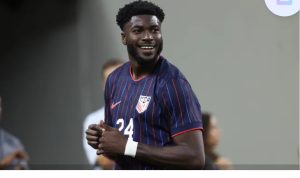
Aaron Boone is on the Hot Seat for Yankees Thanks to This Avoidable Mistake
When the New York Yankees hired Aaron Boone ahead of the 2018 season, they expected a manager who could blend modern analytics with the classic clubhouse leadership the franchise had long valued. Early returns were promising—Boone led the team to multiple postseason appearances and a 100-win season in his first year. But now, in his seventh season at the helm, Boone finds himself on the hot seat, and it’s not just because of underperformance on the field. A single, avoidable mistake has crystallized years of frustration and raised serious questions about his future in the Bronx.
The Avoidable Mistake: Mishandling the Bullpen
One moment stands out as a turning point: Boone’s recent decision to leave a struggling reliever on the mound in a tight game against a division rival, despite clear signs of fatigue and a fully rested bullpen. The move backfired spectacularly, leading to a blown lead and a loss that encapsulated a recurring theme of Boone’s tenure—questionable bullpen management under pressure.
For years, Boone has faced criticism for his in-game decision-making, particularly with his handling of pitchers. The Yankees have consistently fielded one of the deepest bullpens in baseball, yet Boone has shown a tendency to stick with struggling arms too long or make changes too late. This recent decision wasn’t just a mistake; it was the culmination of a pattern that has worn thin with fans and, reportedly, with the front office.
A Team Built to Win Now
The 2025 Yankees were not supposed to be a work-in-progress. With stars like Aaron Judge, Juan Soto, and Gerrit Cole leading the roster, the expectation was clear: win the AL East, go deep into October, and contend for a World Series title. General Manager Brian Cashman made bold moves in the offseason, signaling the organization’s all-in approach.
When a team is built to win now, there’s little patience for managerial missteps that cost games. Boone’s bullpen blunder didn’t just cost a win—it symbolized a failure to adjust, to learn from past errors, and to maximize the talent on the roster. For an organization with the Yankees’ standards, that’s unacceptable.
Clubhouse Harmony Isn’t Enough Anymore
One of Boone’s greatest strengths has always been his ability to connect with players. He’s respected in the clubhouse, maintains a calm demeanor under pressure, and protects his guys in the media. In a sport where long seasons can wear on morale, that kind of leadership is valuable.
But at a certain point, personality and communication skills take a backseat to results. Managers are paid to make tough calls, to outmaneuver the opposition, and to manage moments that decide the season. Boone’s latest misstep—and the fan reaction that followed—showed that goodwill earned over the years can evaporate quickly when it starts to feel like déjà vu.
Accountability from the Top Down
It’s easy to lay all the blame at Boone’s feet, but the Yankees’ struggles are a product of larger issues too. Injuries, underperforming stars, and a rigid adherence to analytics have all played roles. Yet Boone is the public face of the decision-making process. When things go wrong in real time, he’s the one with the power to act—and the responsibility when he doesn’t.
Ownership, especially under Hal Steinbrenner, has been more patient than in the days of George Steinbrenner. Still, patience has its limits. If Boone’s decisions continue to cost games in key moments, it becomes harder to justify keeping him in the dugout, no matter how respected he is behind closed doors.
The Clock Is Ticking
With the AL East increasingly competitive and wild card spots no longer a given, the Yankees can’t afford to fall behind in May or June hoping for a second-half surge. If the team is going to contend, it must clean up the mental mistakes and execute in critical spots. That means Boone must be sharper, more proactive, and more decisive.
There’s also the matter of optics. Yankees fans are known for being some of the most passionate and vocal in all of sports. When they begin calling for a manager’s job, it creates a pressure cooker environment that front offices can’t ignore. After the latest blunder, #FireBoone was trending on social media, and boos rained down from the bleachers. That matters.
A Final Chance?
Boone isn’t without hope. He still has the respect of his players, a loaded roster, and a chance to right the ship before the All-Star break. But make no mistake—his margin for error is shrinking fast. If the Yankees don’t climb to the top of the standings soon, or if another game is lost because of poor judgment, the organization may be forced to act.
Boone’s biggest challenge isn’t the opposition—it’s himself. The ability to adapt, to learn from mistakes, and to manage the moment is what separates great managers from average ones. For now, the jury is still out.
But if Aaron Boone wants to keep his job, the time to change is now.







